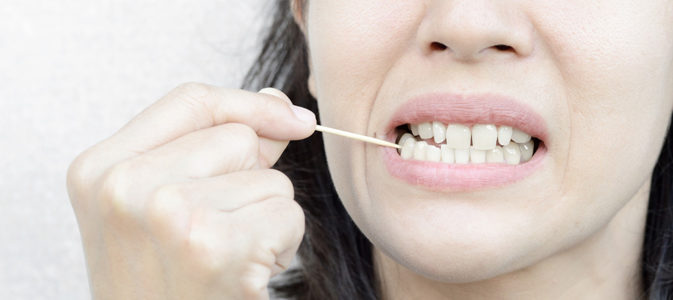There’s a whole new set of things for parents to think about when their children become teenagers. Often at the top of the list are mood-altering or health-damaging substances, such as drugs, alcohol and tobacco.
As both a parent of teenagers and a pharmacist in the Drug and Poison Information Center, I have a dual interest in staying on top of the latest trends. I’ve previously discussed related topics such as juuling and dripping.
Recently, I learned about a new product that other parents need to be aware of: nicotine toothpicks.
They are essentially regular toothpicks infused with nicotine and flavoring agents. I find it interesting that while cigarette use is down among teens, these alternate forms of nicotine consumption are increasing at an alarming rate. As parents, we need to stay informed so that we can talk to our teens about them. Here’s what parents need to know about nicotine toothpicks:
What Parents Need to Know About Nicotine Toothpicks
1. They’re discreet
They look like any other toothpick. They’re smokeless and mess-free. I worry that parents and teachers will be unaware that a seemingly innocuous act of biting a toothpick could actually deliver a harmful amount of nicotine.
2. They contain a lot of nicotine
A single toothpick can contain more nicotine than what most smokers inhale from one cigarette. For instance, most smokers inhale about 1.5 mg of nicotine, while a toothpick can contain 3 mg. When it is chewed, the saliva extracts the nicotine from the toothpick and then it gets absorbed into the body. The amount of nicotine per container of toothpicks can be equal to one pack of cigarettes; one can of tobacco dip; one e-cigarette cartridge; and one JUUL pod.
3. They’re easily accessible
They are inexpensive, accessible in some stores, and available online. A quick Google search will reveal just how easy it is to purchase them. All I had to do was click a button that stated I was 18. No other verification was necessary.
4. They’re available in enticing flavors
I’m concerned that teens will be drawn to the enticing flavors such as mint, cinnamon, and fruit.
Regardless of the method of consumption, I would like to reiterate how harmful nicotine is to the teenage brain. Because their brains are still developing, teens are particularly sensitive to nicotine addiction. In addition, nicotine may rewire their brains to be more easily addicted to other drugs. Longer-term problems can include concentration and learning issues, as well as impulse control. This is why it’s important for us to help prevent teens from starting in the first place. Please talk to them about the dangers of nicotine and the importance of avoiding all nicotine-containing products, including toothpicks.
If you have questions about nicotine toothpicks or other harmful substances, please contact your Drug and Poison Information Center at 1-800-222-1222.





